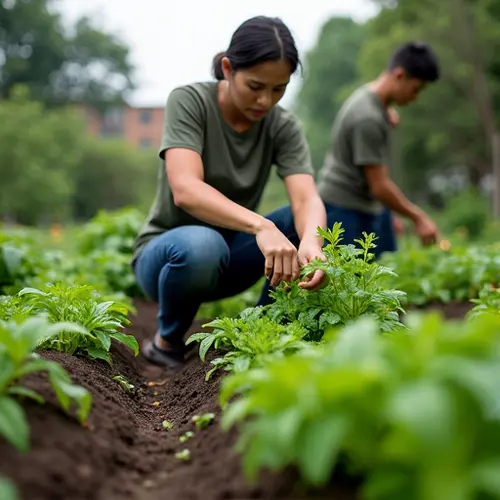
How to Grow Your Own Food During Economic Uncertainty
In times of economic instability, growing your own food can provide both financial relief and food security. Urban farming and small-space gardening have emerged as practical solutions for individuals and families looking to become more self-sufficient. Here’s a comprehensive guide to help you get started.
Why Grow Your Own Food?
Urban agriculture, or growing food in cities, has a long history dating back to ancient civilizations. Today, it offers a way to reduce grocery bills, ensure access to fresh produce, and build resilience against economic downturns. Whether you have a balcony, rooftop, or a small backyard, you can cultivate a productive garden.
Getting Started with Small-Space Gardening
1. Choose the Right Crops: Focus on plants that thrive in confined spaces, such as leafy greens (lettuce, spinach, kale), herbs (basil, mint, parsley), and compact vegetables like cherry tomatoes and peppers.
2. Utilize Vertical Space: Vertical gardening maximizes limited space. Use trellises, hanging planters, or wall-mounted containers to grow climbing plants like beans, peas, and cucumbers.
3. Container Gardening: Almost any container can become a garden—buckets, pots, or even repurposed items like old tires. Ensure proper drainage and use high-quality soil.
Overcoming Challenges
Urban gardeners often face issues like limited sunlight, poor soil quality, and pests. Here’s how to tackle them:
- Light: Place plants in the sunniest spots. If natural light is scarce, consider grow lights.
- Soil: Use compost and organic fertilizers to enrich soil. Raised beds or containers can help avoid contaminated urban soil.
- Pests: Companion planting (e.g., marigolds to deter aphids) and natural remedies like neem oil can keep pests at bay.
Resilience Gardening
Resilience gardening focuses on sustainability and long-term food production. Techniques include:
- Seed Saving: Collect seeds from your best plants to grow next season.
- Perennial Plants: Grow perennials like asparagus or rhubarb for yearly harvests.
- Rainwater Harvesting: Use rain barrels to conserve water.
Community and Resources
Join local gardening groups or online forums to share tips and resources. Many cities offer community garden plots for those without private space.
For more detailed guidance, check out resources like Fresh Food From Small Spaces by R.J. Ruppenthal.

 Nederlands
Nederlands
 English
English
 Deutsch
Deutsch
 Français
Français
 Español
Español
 Português
Português